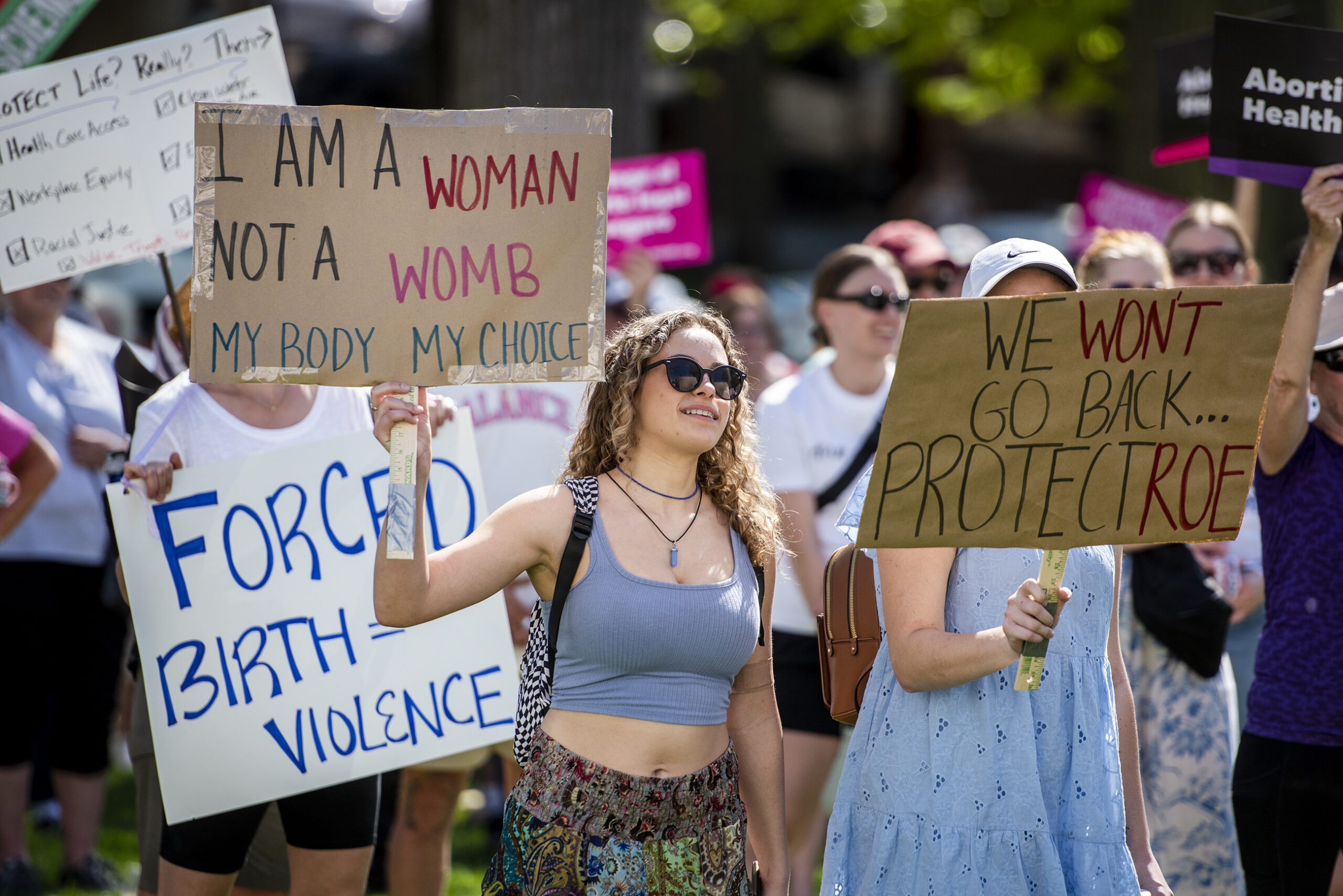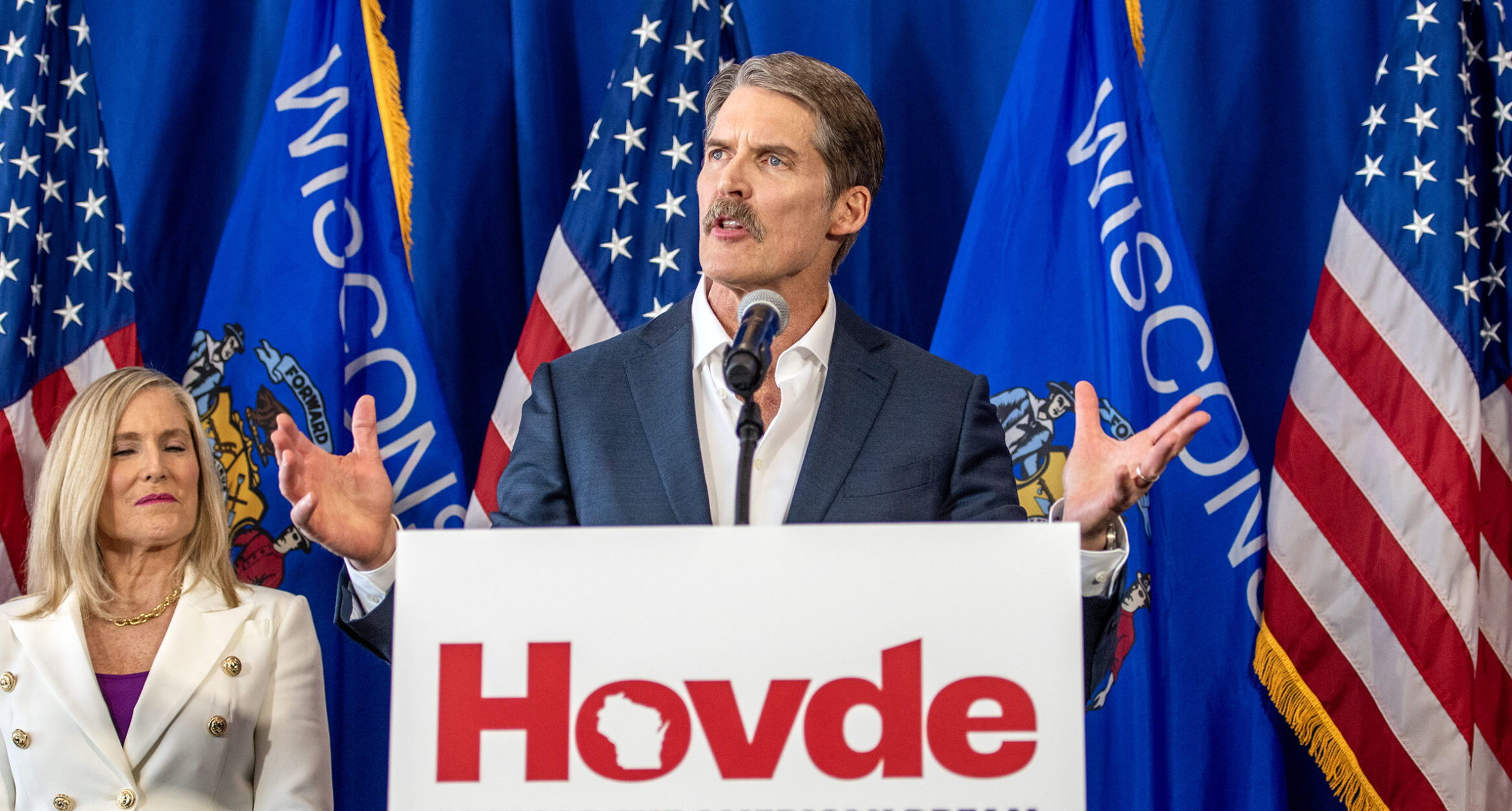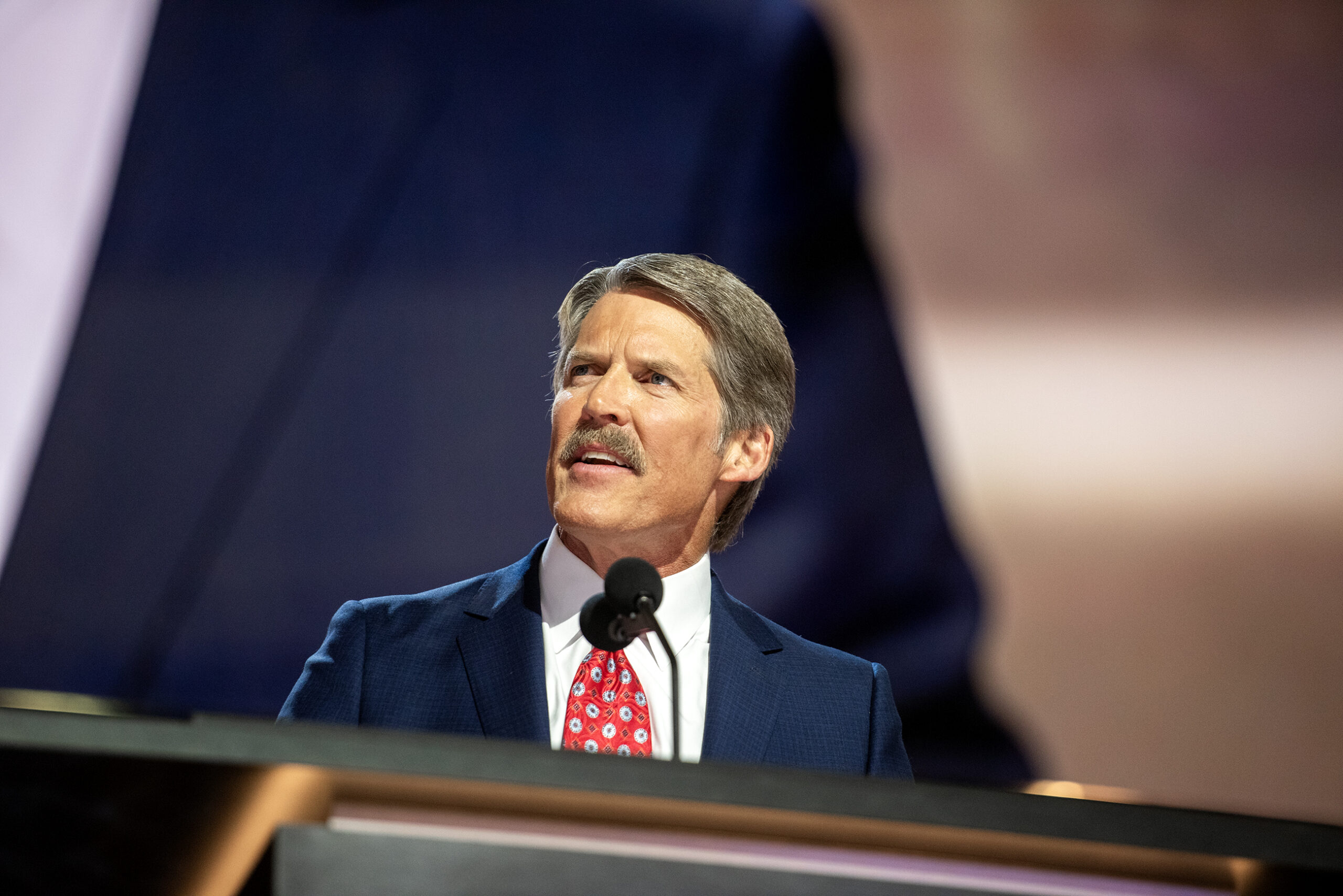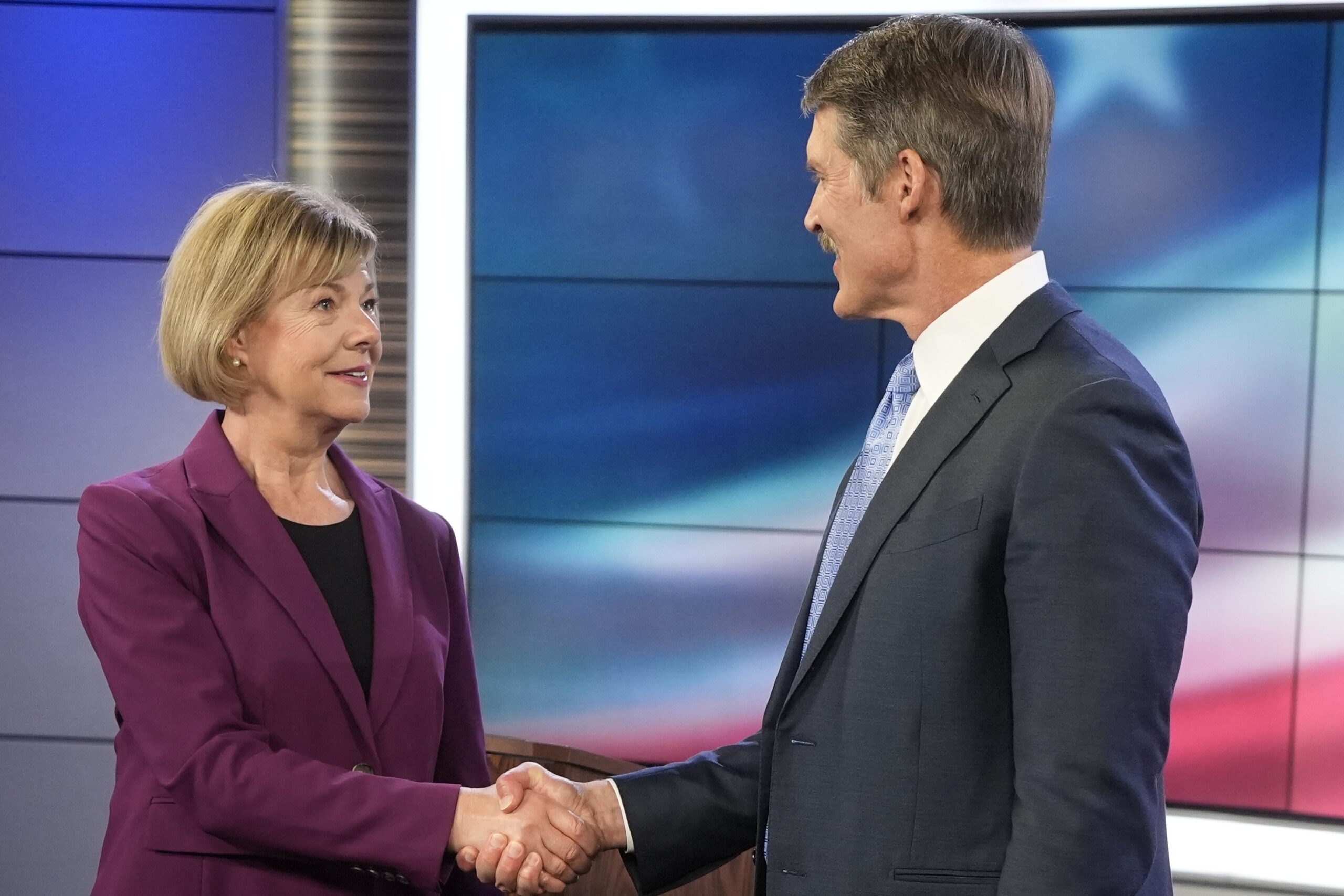Republican U.S. Senate candidate Eric Hovde says an abortion ban between 12 and 14 weeks “is probably a reasonable time range” for people to decide whether to terminate their pregnancies — but Wisconsin voters should decide.
Democratic U.S. Sen. Tammy Baldwin says “women and their doctors should decide their care.”
Hovde told Milwaukee reporters in April that women “should have a right to make a choice” early on in their pregnancies. During a Sunday appearance on WISN’s “UPFRONT,” the Republican business executive and Senate hopeful was asked to elaborate.
“Look, first of all, it’s been put back to the states,” Hovde said, referring to the 2022 U.S. Supreme Court ruling striking down federal Roe v. Wade abortion protections first established in 1973.
Stay informed on the latest news
Sign up for WPR’s email newsletter.
During his 2012 campaign for U.S. Senate, Hovde said he favored overturning Roe.
On Sunday, Hovde claimed countries in western Europe had settled the abortion question “decades ago.” In particular, he said Germany allows a woman to have a legal abortion within 12 weeks of conception and France allows abortions up to 14 weeks of pregnancy. He was asked whether those timelines would work in Wisconsin.
“I think somewhere in that time range is probably a reasonable time range,” Hovde said.
In April, French lawmakers became the first nation in the world to make abortion a constitutional right, though limits on elective abortions are still set at 14 weeks. That same month, a government-appointed commission in Germany called for lifting all abortion restrictions within the first 12 weeks of pregnancy while maintaining its ban after 22 weeks.
In an emailed statement, Baldwin’s press secretary Jackie Rosa told WPR, “Eric Hovde thinks he and politicians like him should be in charge of women’s health care.”
“Tammy Baldwin thinks women and their doctors should decide their own care,” Rosa said.
Rosa said Baldwin is “leading the fight to restore women’s freedoms” with her “Women’s Health Protection Act,” which was introduced in the U.S. Senate in April 2023. The bill has not received any votes in that chamber.

On Sunday, Hovde said he doesn’t support passing a 15-week national abortion ban “because certain states may have more restrictions, certain states may have a more open view from a standpoint of giving a bit more time.”
An April Marquette University Law School poll of Wisconsin voters found 54 percent of respondents either strongly or somewhat favored a national 15-week abortion ban, while 42 percent strongly or somewhat opposed the idea. The same poll found 62 percent of respondents opposed the overturning of Roe v. Wade and 37 percent supported the Supreme Court’s action.
Hovde said he’d rather see a referendum held in Wisconsin to find “a compassionate, commonsense solution to bring our state together on this issue.”
The idea of asking voters to weigh in directly on abortion issues was floated by Republican U.S. Sen. Ron Johnson in 2022. A sample ballot from Johnson’s office posed the question, “At what point does society have the responsibility to protect the life of an unborn child?” with options ranging from “the moment of conception” to “never — an unborn child has no right to life.”
Despite Johnson’s idea and Hovde’s support, Wisconsin does not permit binding legal referendums. To hold one, the state’s Constitution would have to change.
In September 2022, Democratic Gov. Tony Evers called a special session of the Republican-controlled state Legislature to amend the Constitution allowing members of the public the power to pass state laws on abortion and other issues like redistricting and marijuana legalization. Republican’s gaveled in and gaveled out of the session without taking any action.
Instead, Republican members of the Wisconsin Assembly passed a bill in January that would have asked voters if abortions should be restricted after 14 weeks of pregnancy. The legislation never got a vote in the state Senate, and even if it did, Evers promised a veto.
During the Republican Party of Wisconsin’s state convention in Appleton on Saturday, Johnson urged GOP faithfuls to set aside their “squabbles” over abortion limits because “we have to win elections.”
Wisconsin has two abortion bans on the books, but neither are currently being enforced due to a recent court ruling, which is being appealed. When Roe was overturned, all abortion services were halted in Wisconsin due to a law first enacted in 1849.
A 20-week abortion ban was signed into law in 2015 by former Republican Gov Scott Walker. That law makes no exceptions for pregnancies stemming from rape or incest and was one of the most stringent measures in the nation when it was enacted.
Despite the bans, abortion services resumed in Wisconsin in September 2023 as a legal challenge to 19th century law was working its way through state courts. In December, Dane County Circuit Court Judge Diane Schlipper ruled that law only applies to feticide — when someone attacks a pregnant person and destroys their fetus — rather than consensual abortions.
The case has been appealed to the Wisconsin Supreme Court, which flipped from a conservative to liberal majority last August.
Wisconsin Public Radio, © Copyright 2025, Board of Regents of the University of Wisconsin System and Wisconsin Educational Communications Board.



